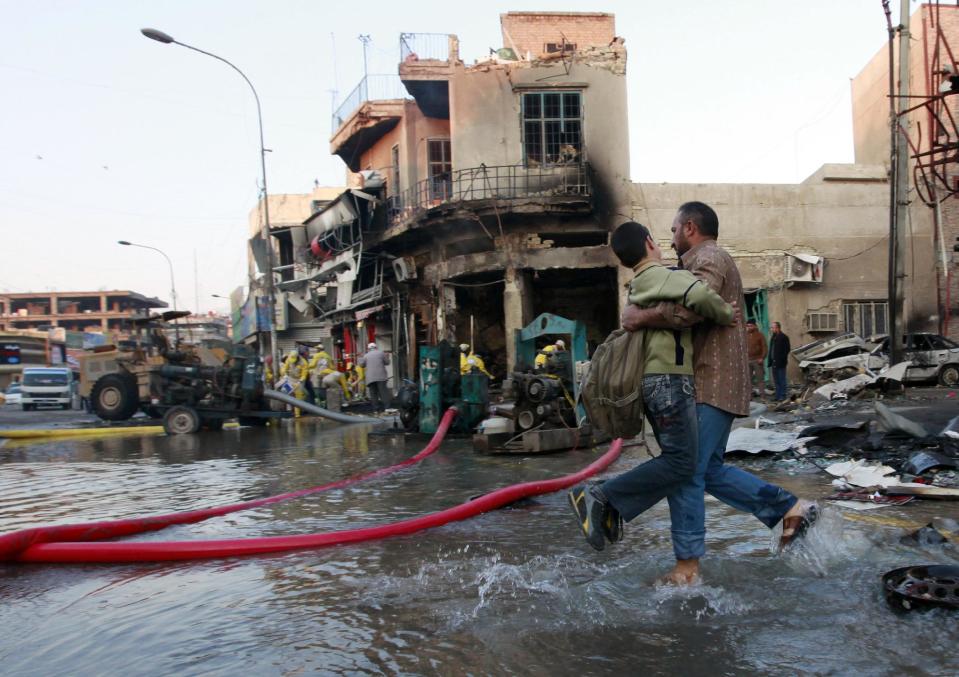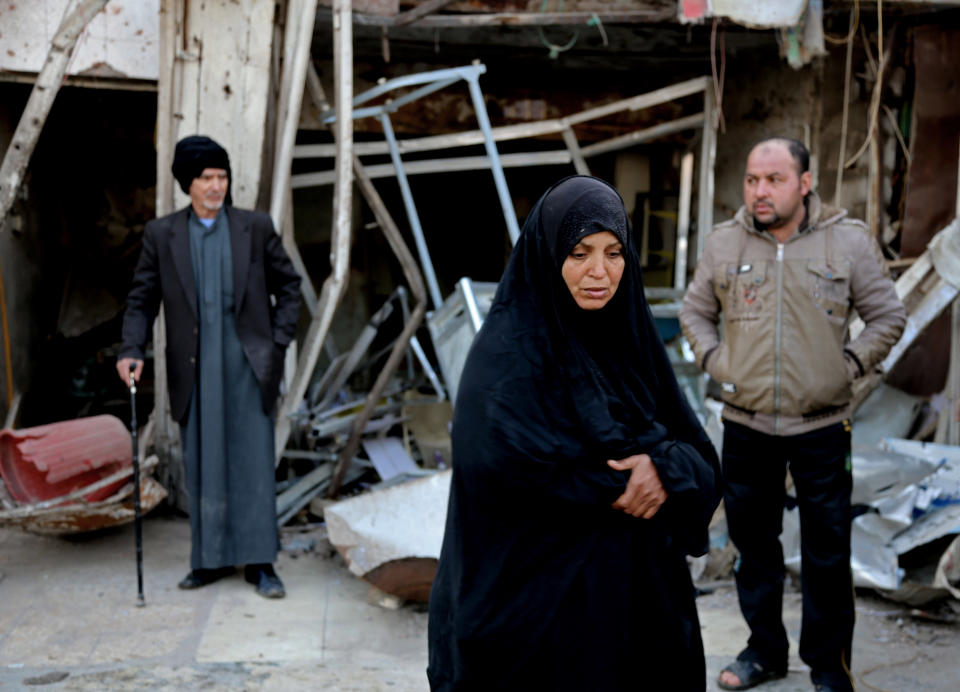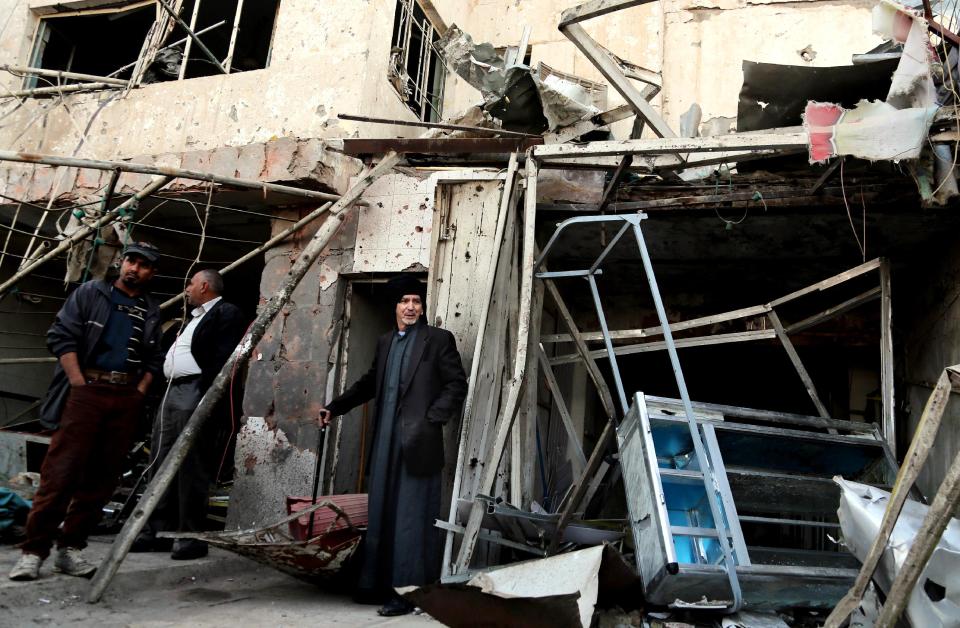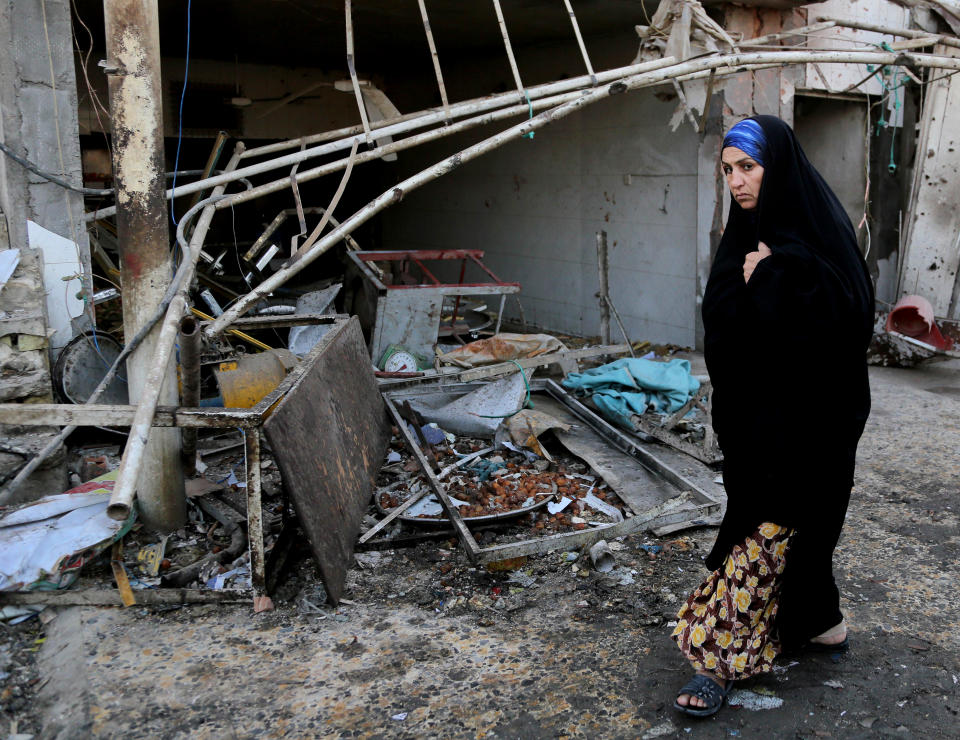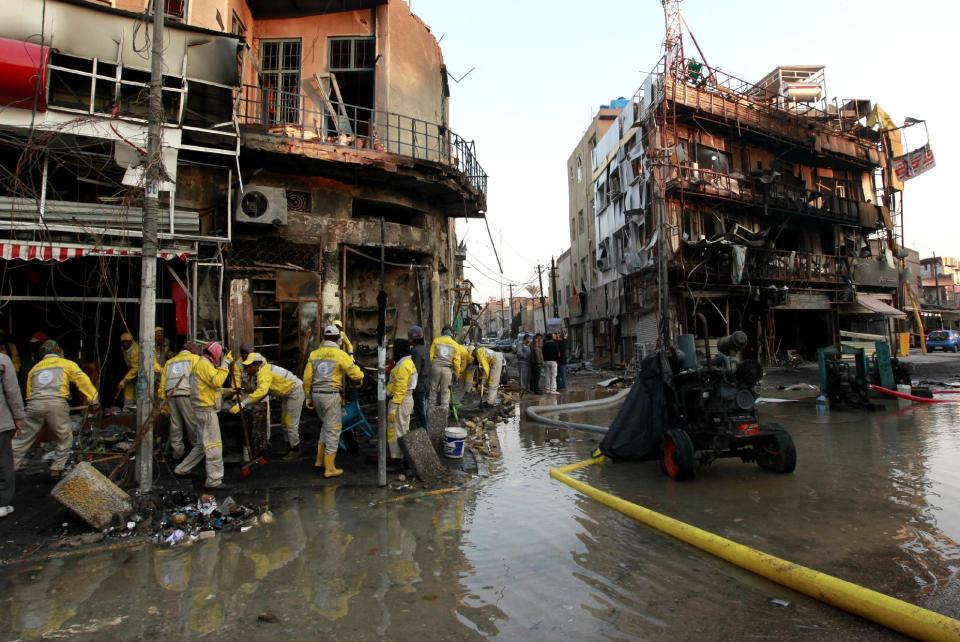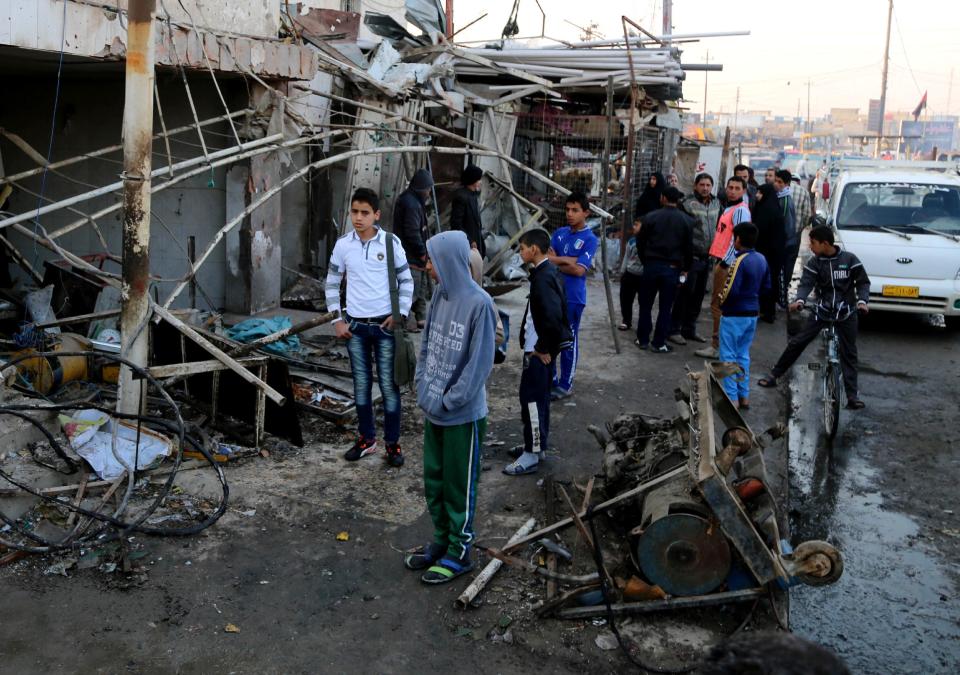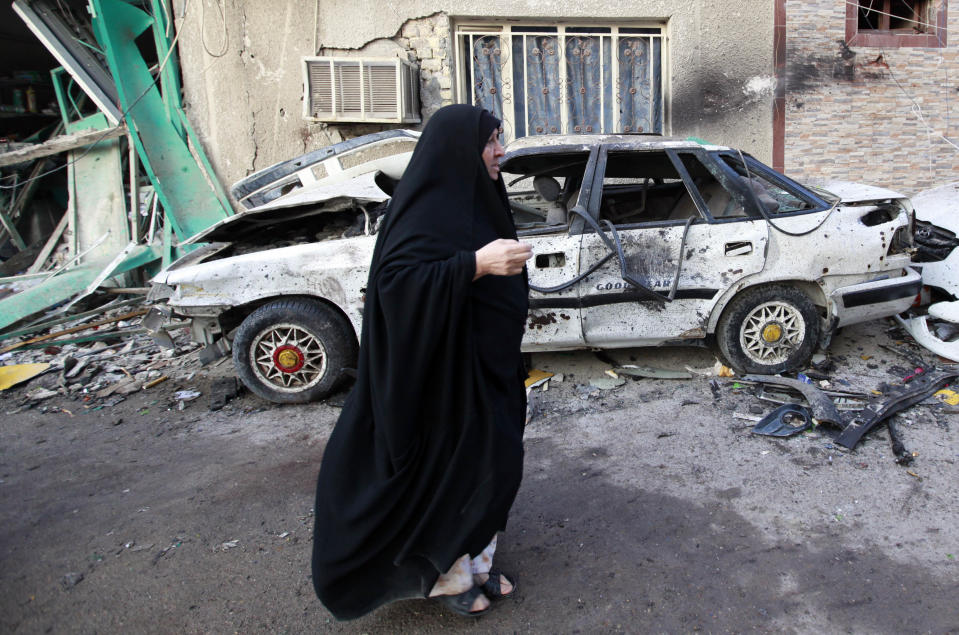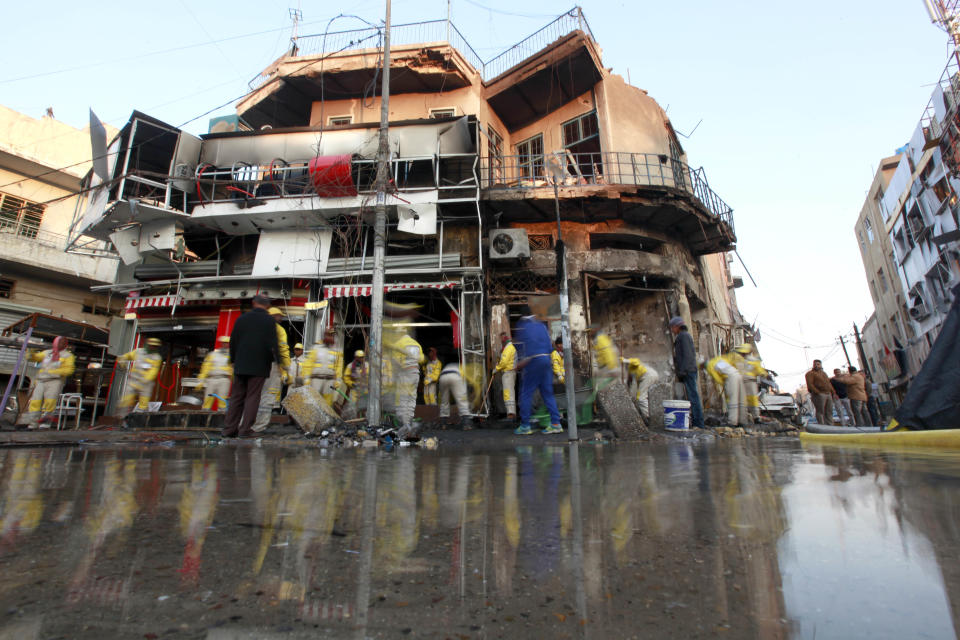Influential Iraqi cleric rebukes government
BAGHDAD (AP) — Just days after announcing he was retiring from politics, a hard-line Shiite cleric who has traditionally played the role of kingmaker delivered a scathing rebuke of the Iraqi government and even politicians in his own movement Tuesday, suggesting he's not giving up his influence as national elections draw near.
Muqtada al-Sadr's statement came as the country is mired in a resurgence of violence with Sunni militants battling the Shiite-led government for control of volatile areas west of Baghdad and an uptick in deadly bombings mainly targeting security officials and Shiite areas. Several explosive-laden cars blew up Tuesday in Baghdad and cities to the south, killing at least 33 people and wounding dozens.
In a televised speech from his home in the holy Shiite city of Najaf, al-Sadr sharply criticized the Iraqi government for failing to achieve security, or improve public services or the economy.
"Politics has become a gateway for injustice, recklessness and abuses by a dictator and tyrant who controls the funds only to steal them, bombs the cities, creates divisions among sects, buys loyalty and breaks the hearts so that all will vote for him to stay in power," al-Sadr said, reading from a written statement. "Iraq is being governed by blood-thirsty wolves and people panting after money while leaving the people engulfed with suffering and fear."
But he called on Iraqis to vote in parliamentary elections scheduled for April 30 and to choose honest candidates.
Al-Sadr also slammed politicians linked to his own movement, accusing them of "collecting money, shedding blood and violating people's dignity under our name, shrugging off decisions and religious rulings," by exploiting his family's name.
Al-Sadr's statement that he was retiring from politics on Saturday surprised many Iraqis as it came just over two months before national parliamentary elections are due to be held. Sadrists hold 40 out of 325 seats in the legislature, making them the largest single Shiite bloc, and hold six Cabinet seats.
The mercurial cleric, whose followers were blamed for some of the worst sectarian violence and attacks against U.S. forces during the war, has made such announcements before and observers were divided over whether he was sincere this time or posturing for support.
One Sadrist lawmaker, speaking on condition of anonymity because no members of the bloc were permitted to make public statements on the issue, said the Shiite leader was angered when parliament voted to approve a law giving legislators and senior government officials higher pensions despite his objection. He also was disappointed over corruption allegations facing members of his own bloc, the lawmaker said.
Al-Sadr, who is in his late 30s and comes from a revered Shiite family, has enjoyed wide support from impoverished Shiites since the 2003 U.S.-led invasion that toppled Saddam Hussein, whose Sunni-dominated government killed his father and grandfather. He established a fearful militia that fought the Americans and engaged in sectarian warfare between Shiite and Sunni extremists that left tens of thousands of people dead.
In politics, he played political kingmaker, including helping Prime Minister Nouri al-Maliki gain power in 2006. But the two men later became enemies and al-Sadr has been forefront among critics accusing al-Maliki of trying to monopolize power and control state institutions.
Baghdad-based political analyst Kadhum al-Muqdadi said al-Sadr's decision may have been prompted by fear of losing support in the upcoming elections due to criticism over poor performances by many members of his bloc. Many Sadrist officials run the service ministries and government departments, making them the focus of public protests against poor services.
"I think he fears that he would be in a weak position while running in the elections due to the outrage in the street against Sadrist officials and lawmakers," al-Muqdadi said. "Any loss could lead the Sadrists to form a resistance in the street especially if al-Maliki wins a third term and this resistance could be harmful."
Another political analyst Hadi Jalo said al-Sadr's decision to quit politics could backfire by handing more support to al-Maliki.
"That will definitely weaken the Shiites especially the ones who depended on al-Sadr in past elections," Jalo said.
Iraq is experiencing a rise in violence to levels unseen since the worst of the country's sectarian bloodletting began to subside in 2008.
The deadliest attacks Tuesday were in the capital, where four car bombs killed at least 17 people and wounded 49.The deadliest hit a bus station, leaving seven dead and 18 wounded, according to police and medical officials.
Four more bombs went off nearly simultaneously in the southern Shiite city of Hillah, killing at least 11 people and wounding 35. Hillah is about 60 miles (95 kilometers) south of Baghdad. Outside Hillah in the town of Musayyib, about 60 kilometers (40 miles) south of Baghdad, a parked car bomb killed five civilians and wounded 13.
The officials confirmed the figures on condition of anonymity as they were not authorized to release information.
Nobody immediately claimed responsibility for the attacks, but they bore the hallmarks of Sunni insurgents who frequently use car bombs and suicide attacks in their bid to undermine confidence in the government. Such bombings have increased along with Sunni anger over perceived mistreatment and random arrests by the government.
___
Associated Press writer Murtada Faraj contributed to this report from Baghdad.
_____
Follow Sinan Salaheddin on Twitter at https://twitter.com/sinansm
